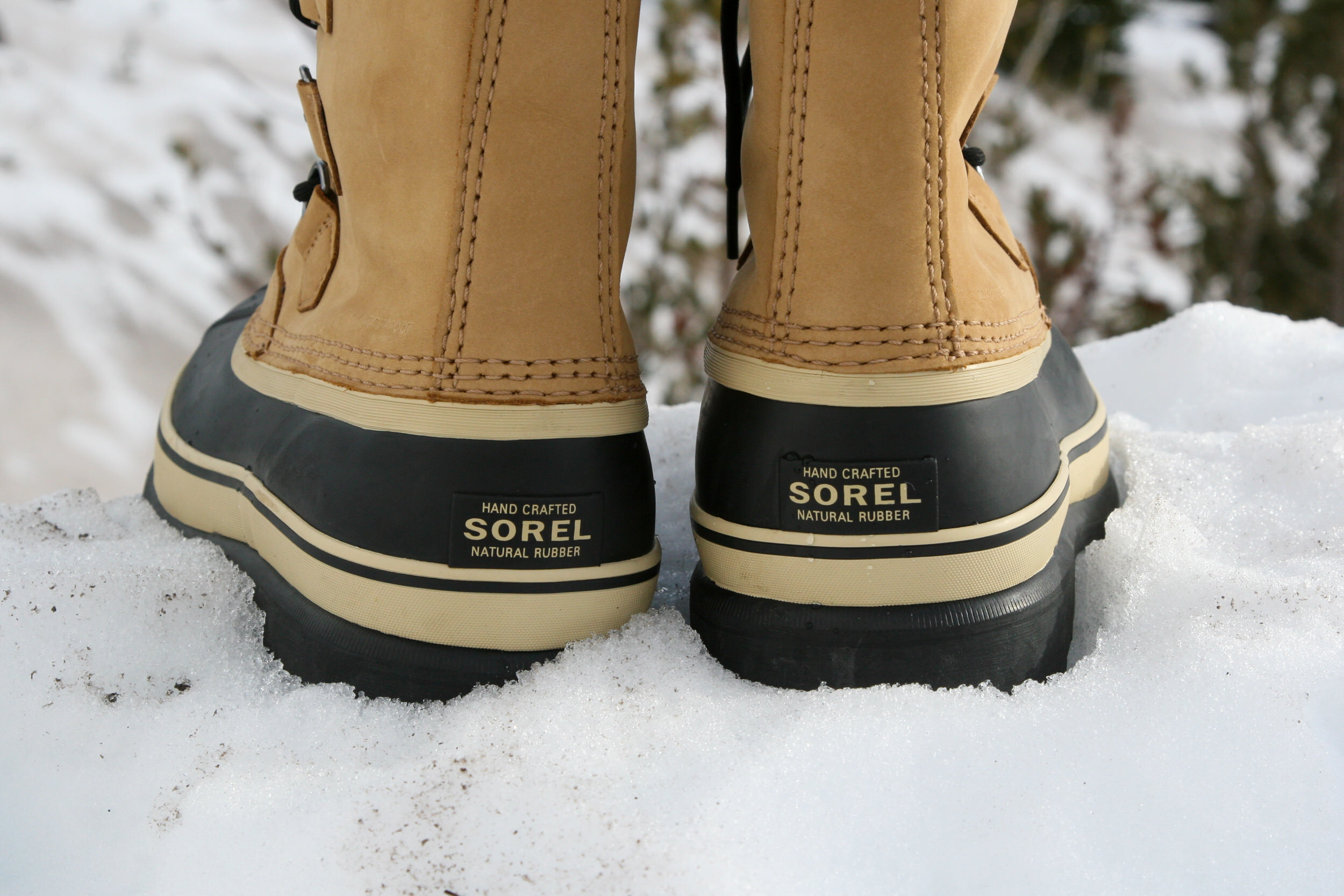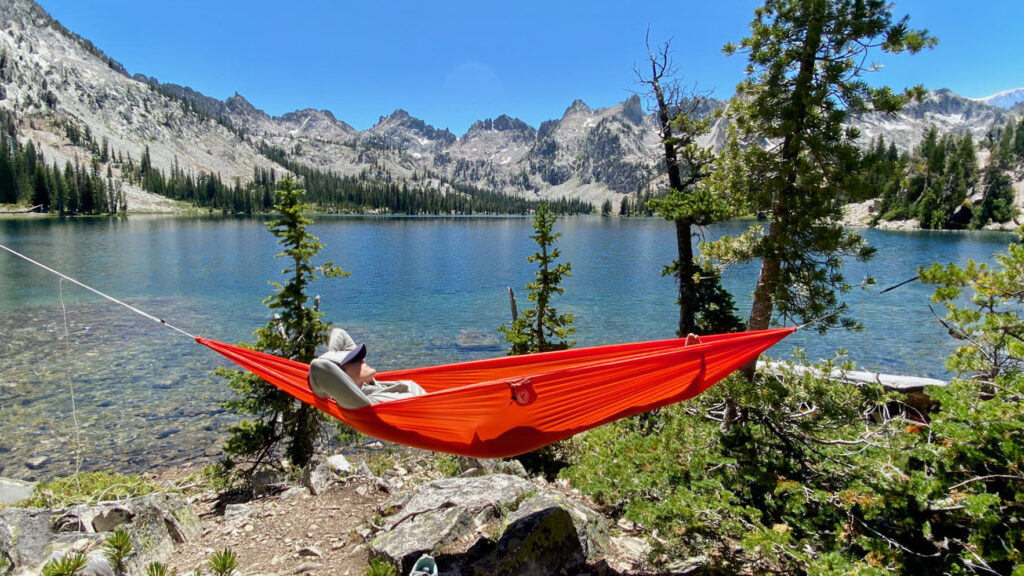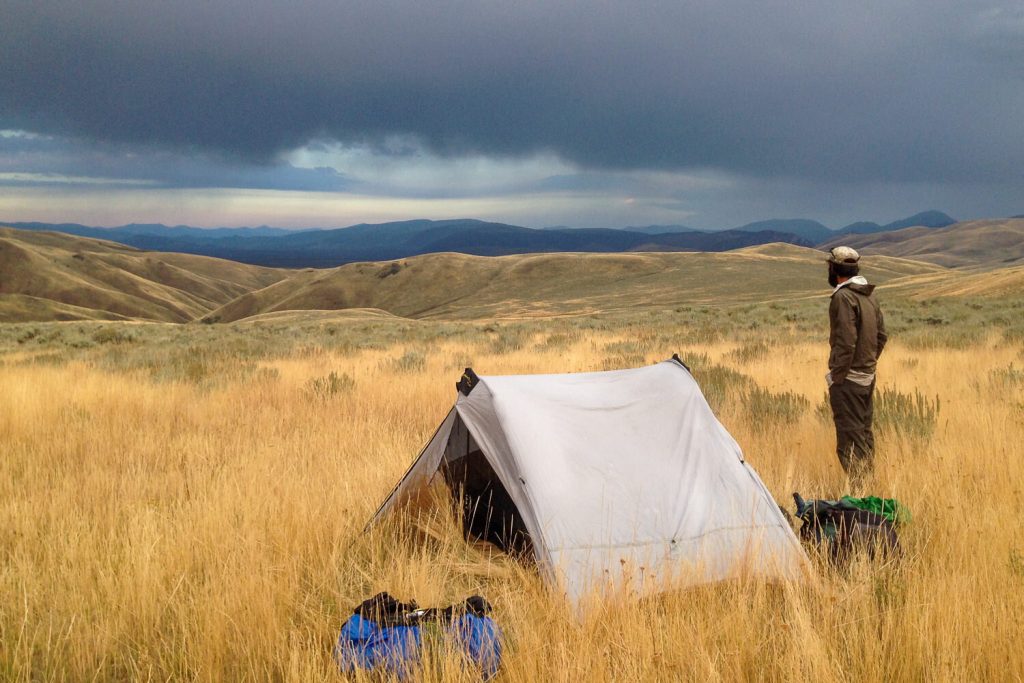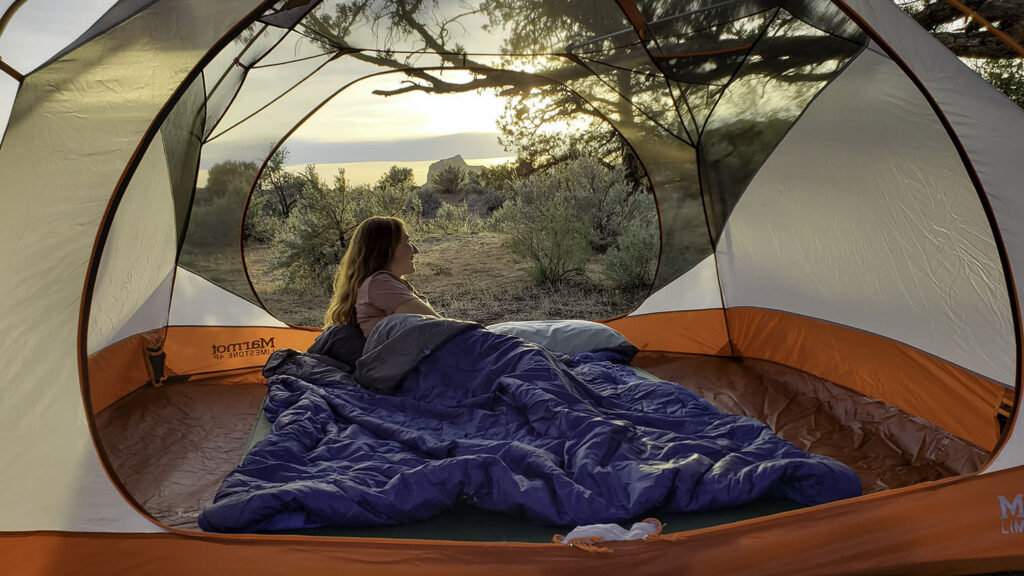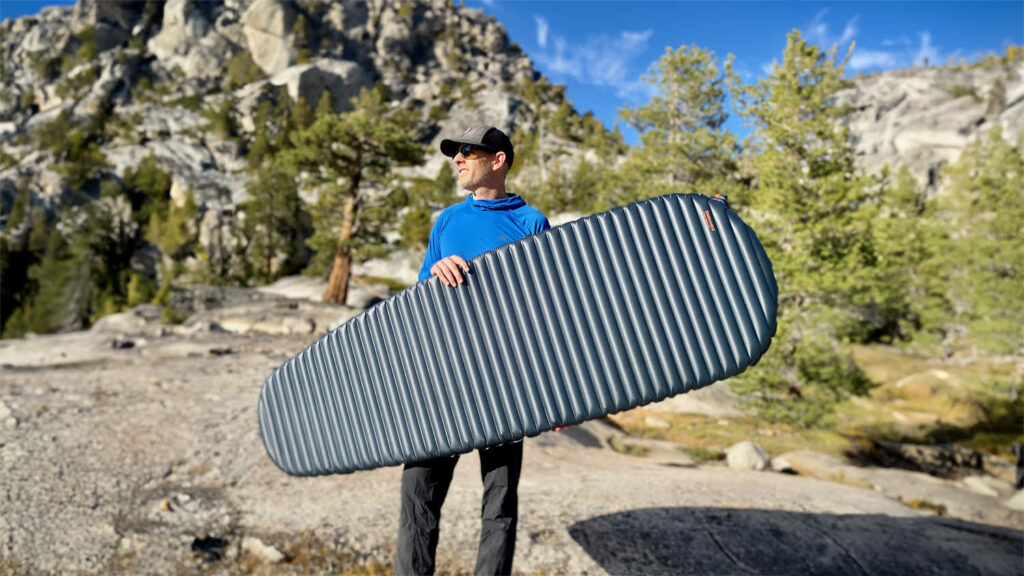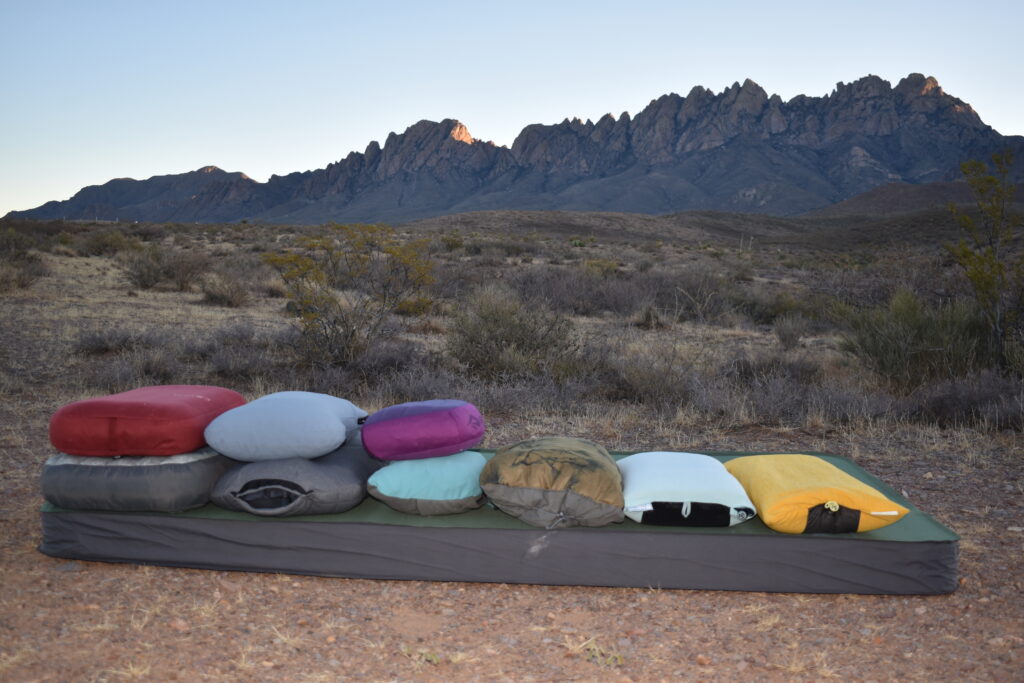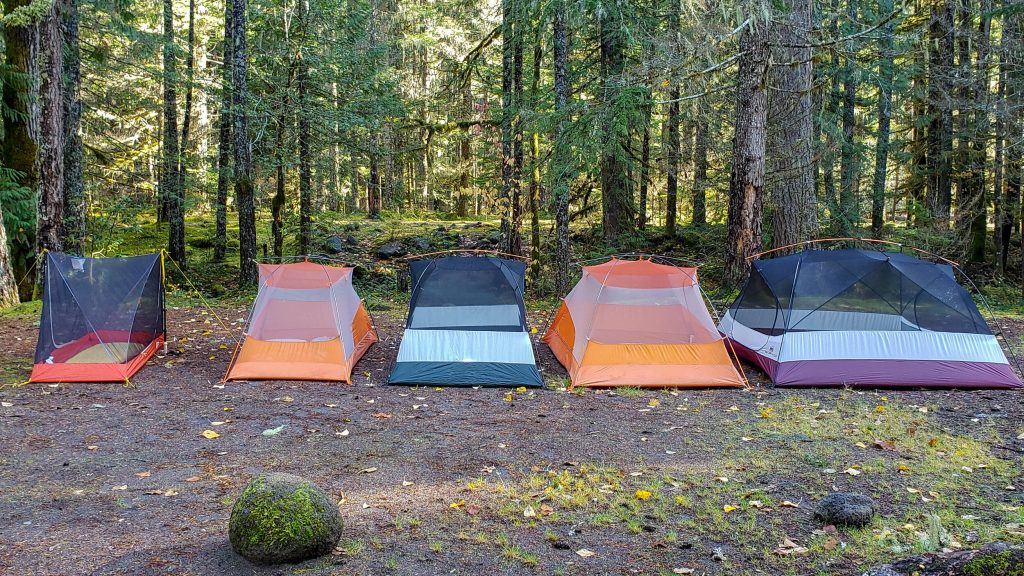
Bottom Line
When temperatures plummeted to minus ten degrees as the Alaskan winter set in, we immediately reached for the Sorel Caribous. An iconic boot that has led the market for warmth and durability for years, it’s a timeless option for those in the coldest climates.
We love the immediate comfort of these boots with little to no break-in period. They are ready for the cold right out of the box. The laces up the boot shaft tighten down comfortably to provide ankle support for hikes and yardwork. These boots are not the best fit for long days on the trail. If that’s your hiking style, you might prefer some other options in our guide to the best men’s winter boots. But they are the boot of choice for cold, outdoor work and low-output activities which need a high degree of insulation. After testing these in Alaska’s winter weather, we can confidently say that the Sorel Caribous are built for the cold and will keep your feet warm and dry for years to come.
Quick Specs
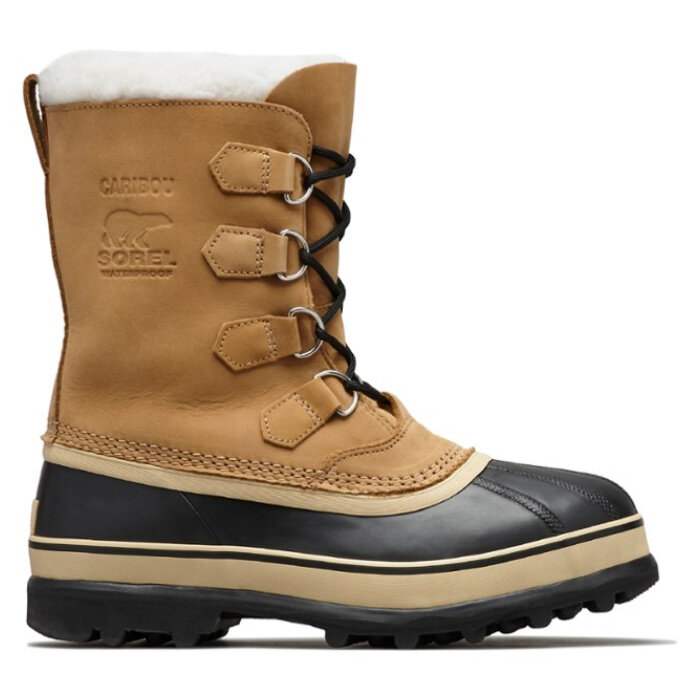
Sorel Caribou
Best Warm Snow Boots
Price: $200
Weight: 5 lb 1 oz
Insulation: synthetic, 9 mm felt liner
Height: 10 in
Pros
- Great value
- Warm
- Comfortable
- Durable
- Excellent traction
- Removable liner (quick-drying, washable & replaceable)
Cons
- Heavy/Bulky
- Loose-fitting (clunky for long walks)
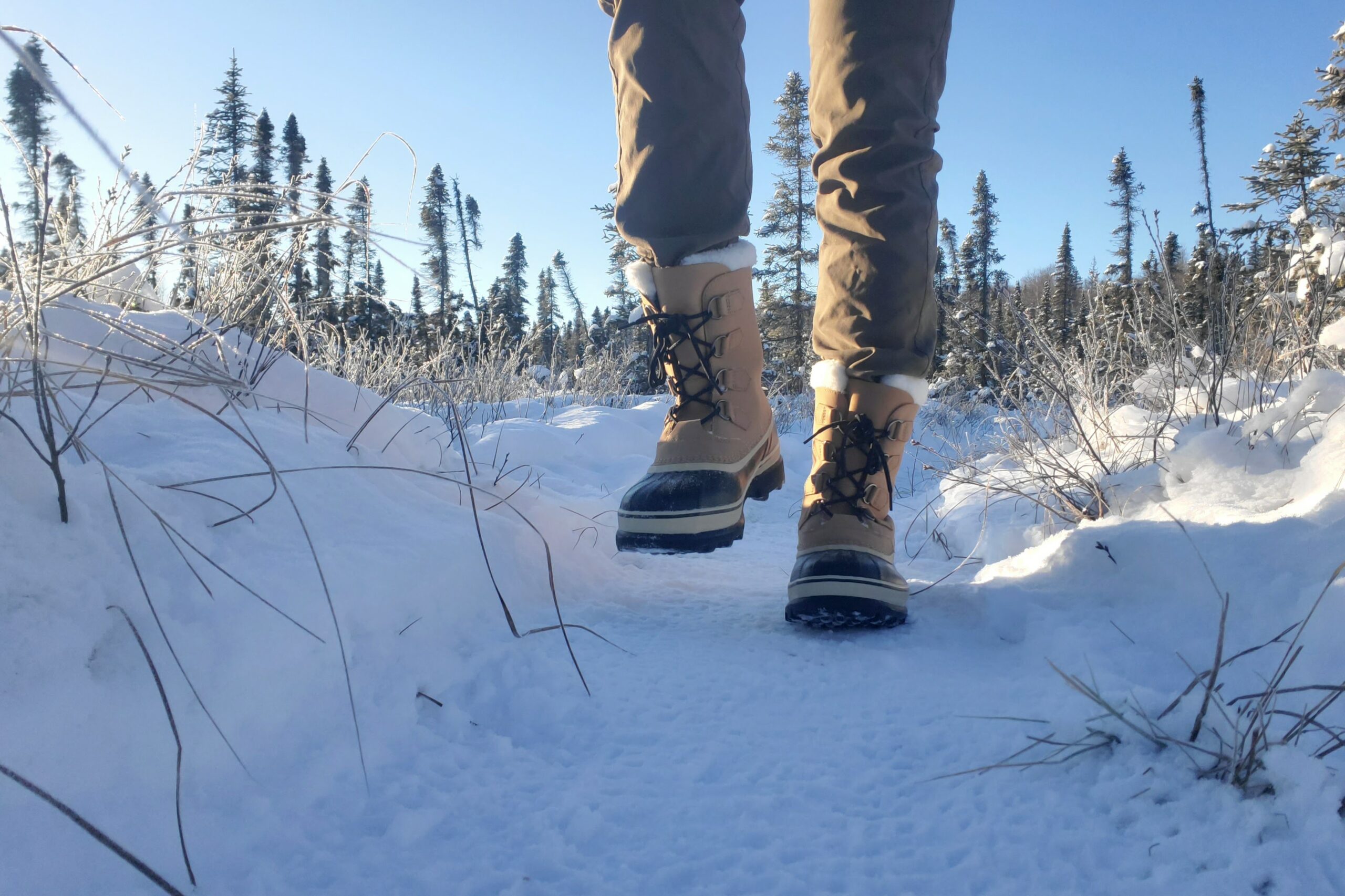
Comfort
We took the Caribou out of the box and straight to a hike on our local Alaskan trails and immediately felt right at home. The footbed is soft yet supportive, and the rubber lower shapes to our foot when we tighten the laces. The leather of the upper shaft is supple and when tightened provides a moderate amount of ankle support for short hikes, errands, and winter yard work.
The interior of the boot is extremely roomy, even to the point of having too much space. The fit does feel a little loose even with the laces tightened. Those with wider feet will fit this boot the best. After just a short walk, it’s immediately evident that these Sorels are heavy. Anything beyond short hikes is tiresome with these extremely bulky boots, so we recommend them for work or shorter outings where covering lots of miles is not the goal.
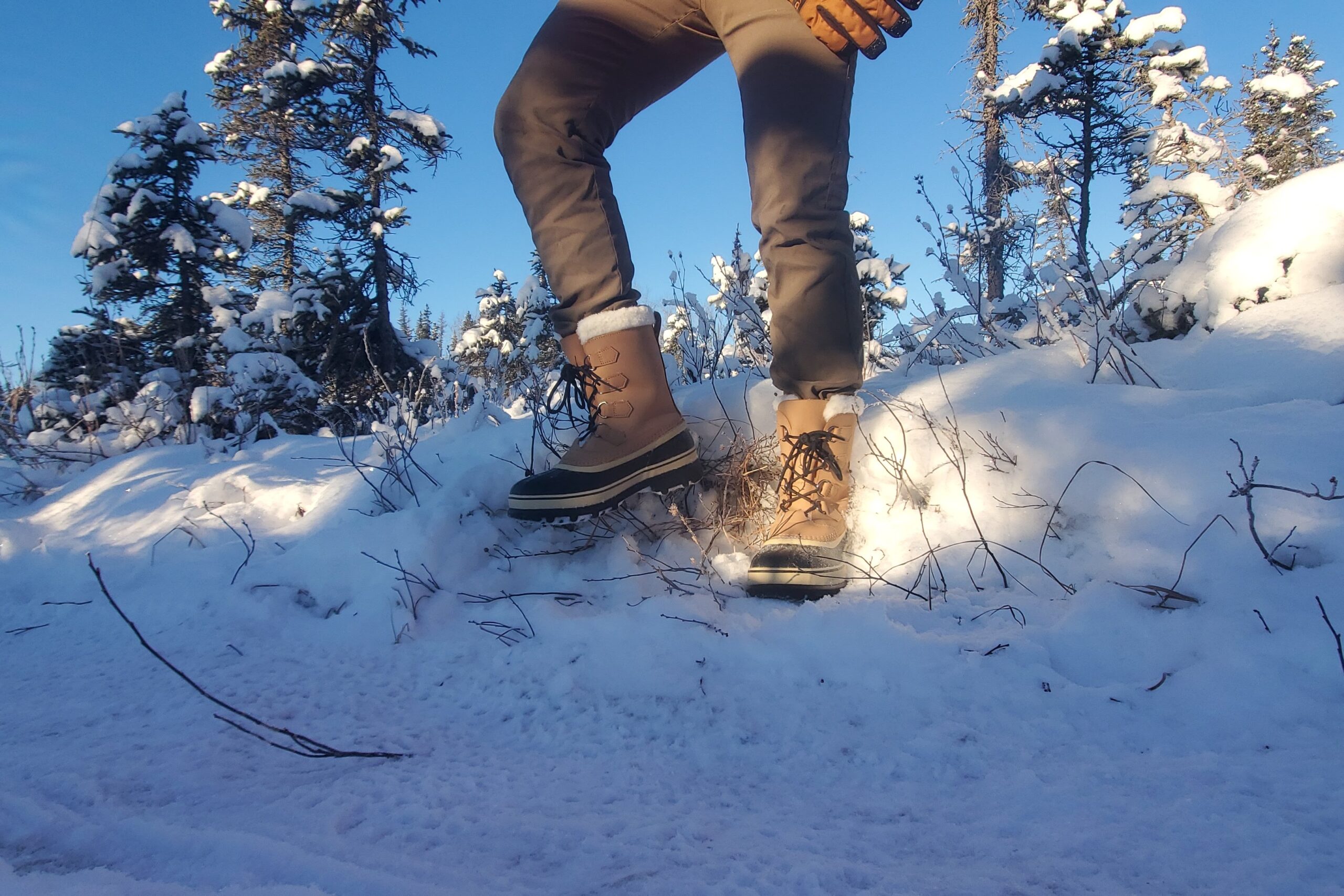
Warmth
When the Alaskan winter set in and we were greeted with temperatures of negative ten and below, the Sorel Caribous were the first boots we reached for. Renowned and widely loved for their warmth, we love these boots for the coldest days of the year. When standing in these boots and being sedentary in the cold, we didn’t feel cold seeping in, and our feet stayed warm for hours.
The Sorel Caribou is a Pac boot, which means that the boot is made up of a leather and rubber exterior with a removable felt liner. Their main insulative force comes from large amounts of dead space in these layers as well as the thick felt. We found that these boots do not breathe very well and that the felt liner can become wet with sweat, compromising some of its warmth. But you can easily dry the liner by removing it and placing it over a vent or other warm area with circulation.
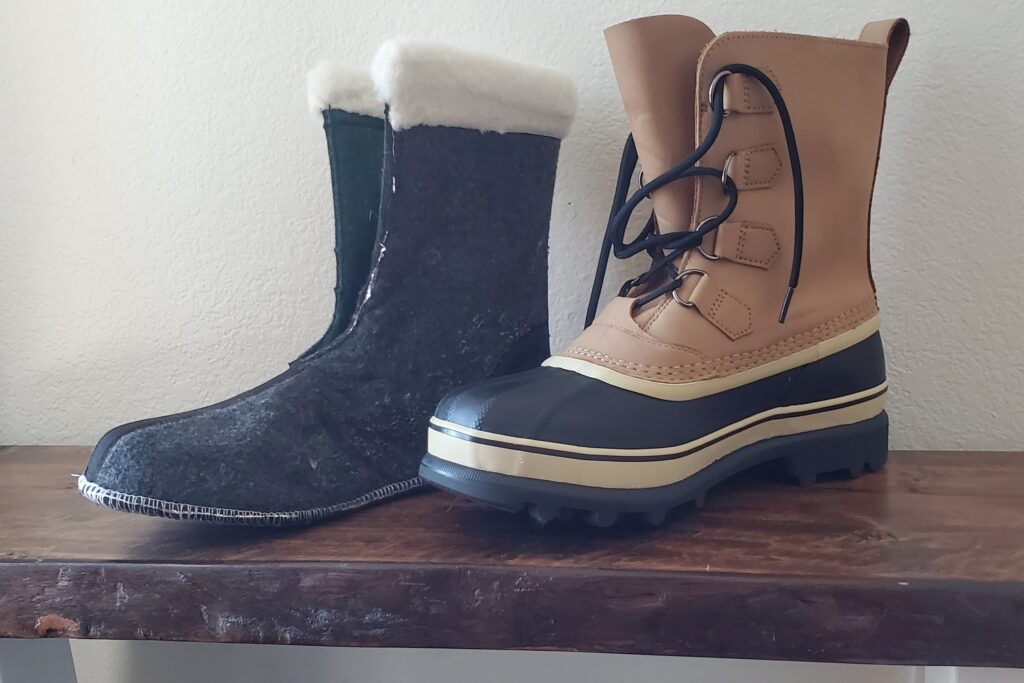
Traction
The Caribou’s tread is unique – with a pattern of rounded dots across most of the length of the sole. Though this provides a lot of surface area for walking on smooth and slippery surfaces, these outsoles do not provide enough grip for loose surfaces. We found that these boots have superb traction on sidewalks, packed trails, and lake ice, but that traction suffers in loose snow and powder.
Without sharp edges and deep voids between the lugs, these boots do not grip the best when hiking through deep snow and steep terrain. We found ourselves slipping and sliding more than other winter boots we tested. Due to how bulky these boots are, it’s very hard to fit traction devices over them for added traction. The Sorel Caribou may not be the best fit for hiking in the mountains, but they provide a great grip for everything you’ll encounter while walking around town, hiking local trails, or working outside.

Weather Resistance
The Caribou’s high level of warmth contributes to its extreme weather resistance. The boot’s rubber lower meets the rugged leather upper, leaving no vulnerabilities for water or snow to penetrate the boot. The fully integrated tongue keeps snow out and warmth in, even when tied loosely. The seam-sealed construction is fully waterproof, and we had no issues with moisture penetrating the materials. The Nubuck leather is sturdy and reliable but may need to be refreshed every so often to keep the boot performing at its best.
During our tests, we found it challenging to fully tighten down this boot around the calf to keep out snow. Though the shaft height is plenty tall enough to keep most snow at bay, we found some snow entering when walking through knee-deep snow. The fuzzy top of the liner attracts and holds onto snow that can then melt and drip into the boot with use. Even though this is a relatively tall winter boot, we suggest using these with gaiters or a good winter pant if venturing into deep snow.
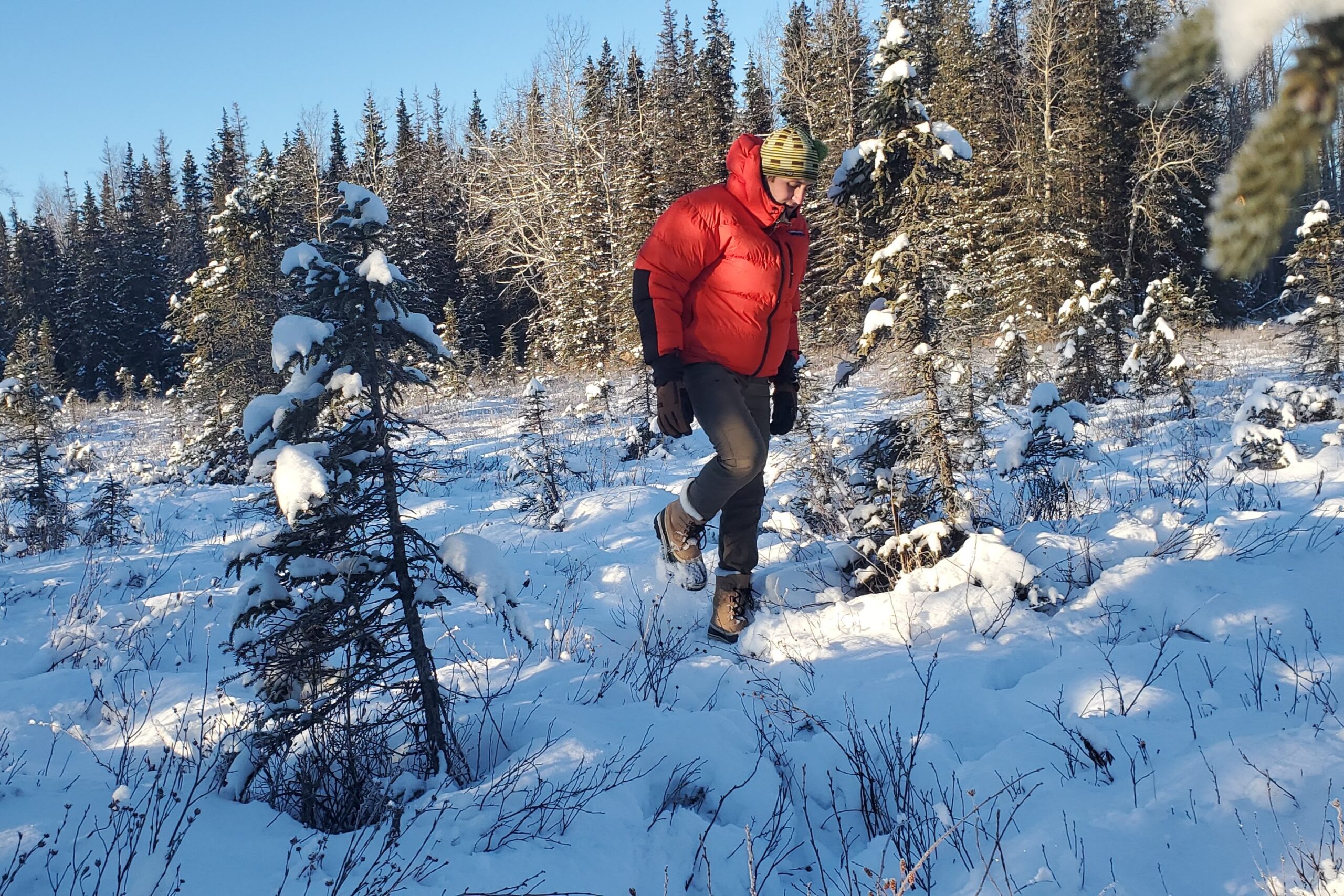
Durability
If you’re looking for one boot to buy and use day in and day out, winter season after winter season, then the Sorel Caribou is well worth your money. For $200, you will get years of use out of this boot. We were particularly impressed with the durability of the sole. Even though it felt soft and easily indented with a fingernail, it has not chipped or worn with use.
Overall, the Caribou looks and feels like a well-made boot. The stitching is tight throughout the boot, and all seams have remained intact. Some users have reported the rubber drying out and cracking over time, but we have not had this experience yet. The crease point is where we would expect this to happen, but so far, the boot remains steadfast and continues to perform admirably in our tests.
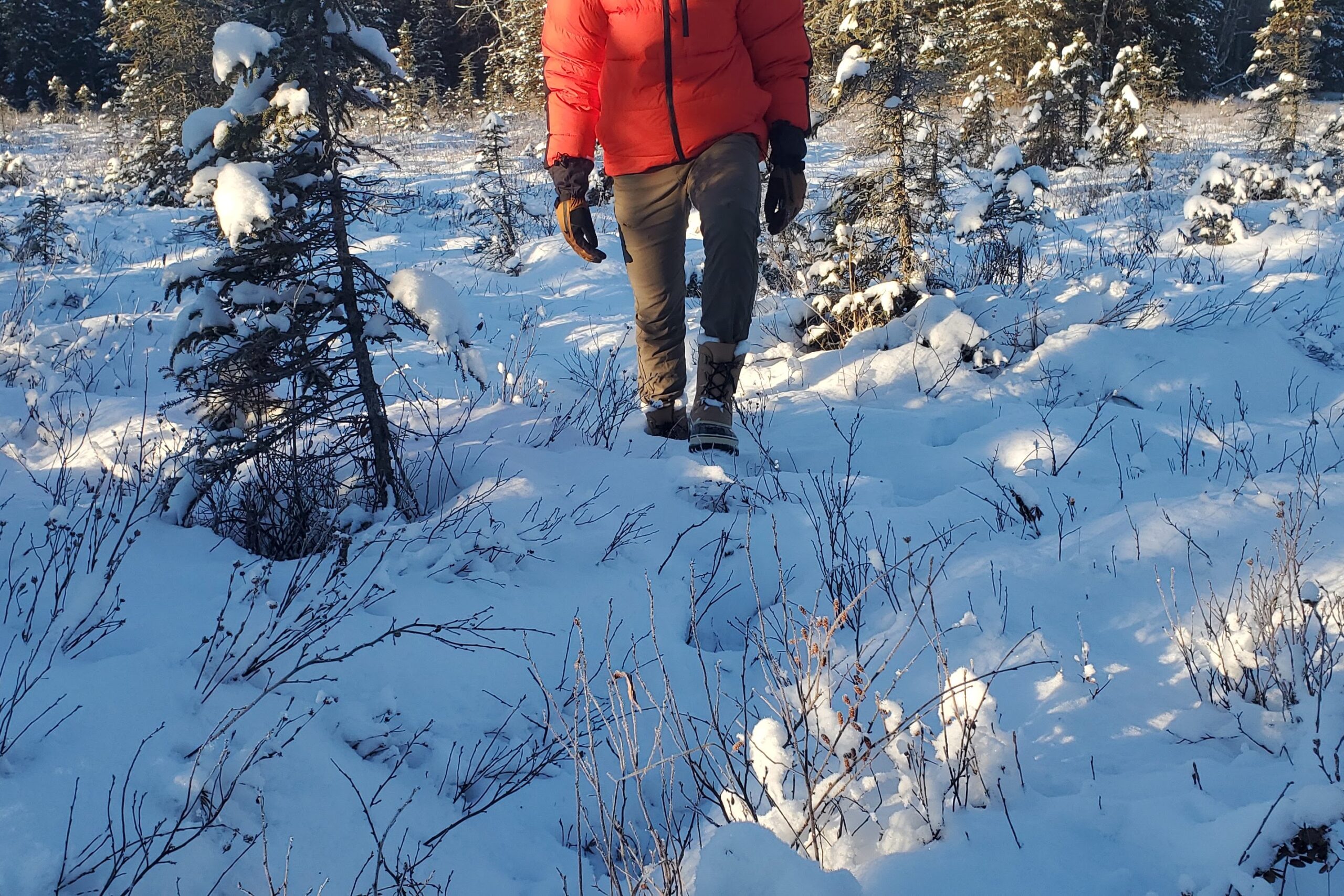
Should You Buy the Men’s Sorel Caribou?
If you’re someone who struggles with cold feet, or who spends long hours in cold weather without generating much body heat, then the Sorel Caribous are perfect. However, if you’re looking for a boot to hike long miles in the mountains, you may need to look elsewhere. The extreme warmth of these boots comes at the price of being heavy and bulky. The Caribous may be comfortable on the feet, but they’re clunky and cumbersome for walking. The tall and secure shaft of the boot keeps the elements out and the heat in. The rubber lower and sturdy leather upper keep all moisture out but often at the expense of breathability. These boots are best for spending long hours standing in the cold, doing chores, and walking short distances. Their excellent durability will keep you using them for years to come.
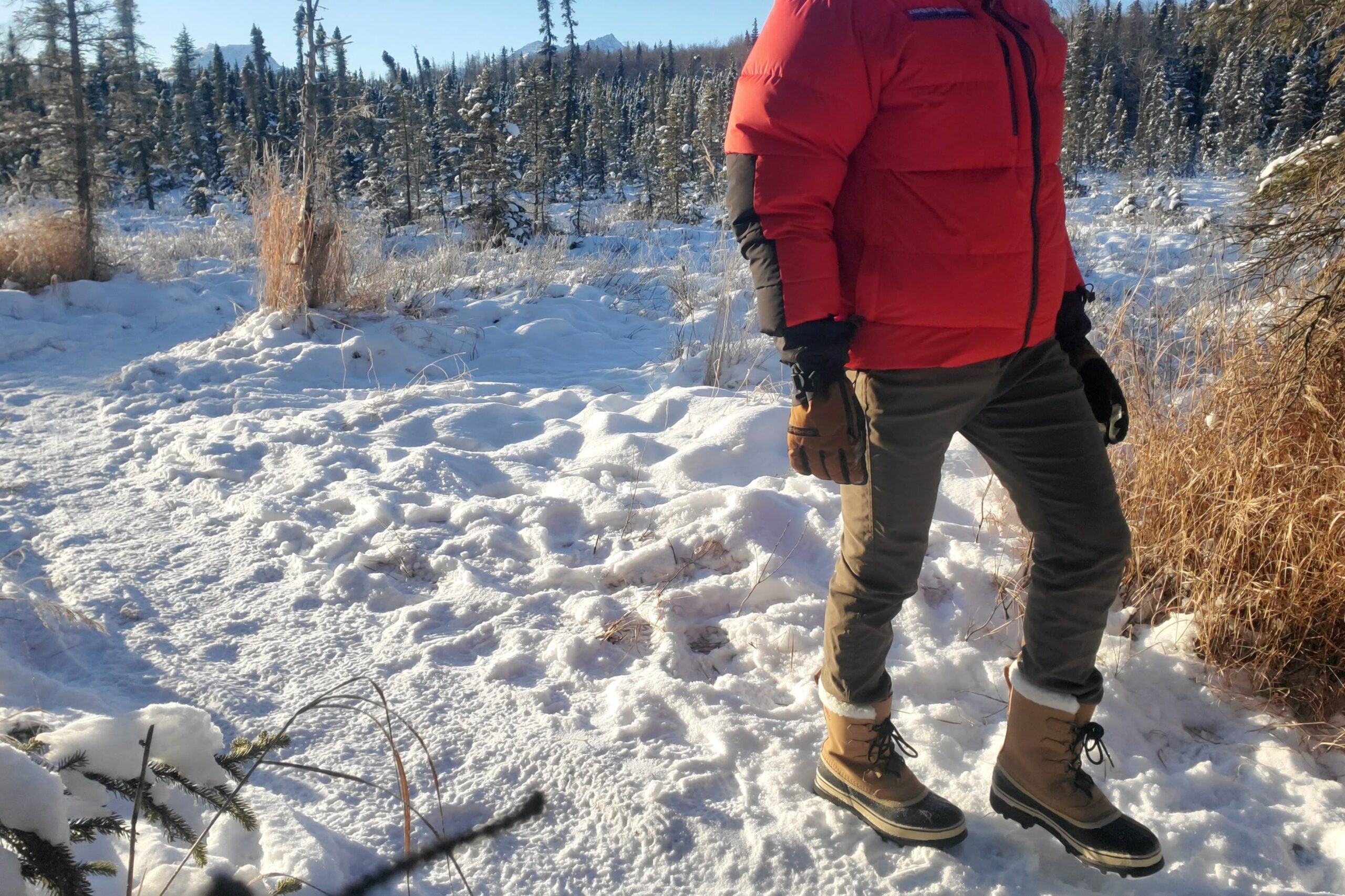
What Other Men’s Winter Boots Should You Consider?
Our Men’s Winter Hiking Boot Guide has several great options tested and reviewed by our Alaska-based gear analyst.
The North Face Chilkat Review – Similarly styled to the Caribou with a rubber lower and supple upper, the Chilkat is a lighter option with enough warmth and weather resistance for snowy adventures. We like to think of this boot as the Caribou’s little cousin as it shares many similar traits while being both lighter and cheaper.
Boggs Bozeman Tall Review – With an even taller shaft height than the Caribou, the Boggs Bozeman is a perfect boot if you’re planning on spending multiple hours in snow, mud, and water. Its neoprene insulation is 100% waterproof and warm enough for most winter temperatures.
KEEN Revel IV Polar Review – If you’re looking for a lighter boot that is still plenty warm for cold days, try out the Revel IV Polar. With a lower shaft height and lighter materials, it’s light enough for long hikes and warm enough for cold days.
